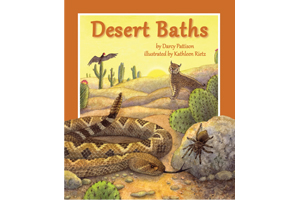Housekeeping note: I’ve updated all the pages for my books, so if you see a stream of them in an email–that’s my complete bibliography.
Dialogue can go wrong in at least 8 ways.
- Know it all. When one character knows it all the reader knows nothing, it’s tempting to have Mr. Know-it-all tell all. Don’t. That sort of “Let me explain. . .” dialogue is deadly to read. Instead, we need information to come out naturally as the tense situation develops. You can add a bit of exposition here, a description there, a tidbit in dialogue. But never do an information dump in dialogue.
- Trivialities. Please. I know that when you meet someone there are pleasantries to be discussed: the weather, polite inquires about how you are feeling and equally polite proclamations that you are perfectly fine and isn’t it a nice spring day. But that sort of trivial banter should be banned from fiction. It is the antithesis of conflict and tension on every page that will keep a reader’s attention.
- So. Trendy. It. Is. Truncated. In an attempt to create a snappy voice, one danger is to truncate dialogue so much that it becomes a staccato bore. Voice is created by a variety of speech rhythms. Some short. And some much longer. Don’t let a truncated style become a habit. Employ it only when a character is angry, upset, traumatized and can’t talk, etc. Otherwise, variety is the spice of dialogue.
- Drama Queen. Please! There are characters so full of drama that you want to use exclamation points everywhere. Really! Life is so full of danger! And one of those dangers is a drama queen who can’t carry on a conversation without exclamations. Get rid of those in favor of a stronger voice (lots of sentence variety), strong verbs to express strong emotions and a dip into DQ’s psyche to let the reader feel those emotions (Show-Don’t-Tell).
- Scientist. Some stories need experts who can explain the complexities of something. For example, Cory Doctorow’s book, LITTLE BROTHER, has lots of complicated explanations about how internet security works. But he never has an expert stop and explain it. The explanations are usually expository, but are straightforward and interesting. Some are integrated into the storyline, as the characters play out a way to get around computer security systems. Be careful not to let even expository be too heavy handed, but for sure, keep it out of dialogue. At all costs, avoid the dreaded talking heads.
- Poor Memory. In a memoir, can you really recreate pages of dialogue? No. Key phrases may live in your memory, but few can remember word-for-word exchanges. For this type writing, you’ll have to rely on reconstructed dialogue, but it needs to come up against the standards of good dialogue. No chit-chat, no information dumps, no truncated speech, etc. For flashbacks, of course, fiction rules apply and you can create whatever dialogue is needed.
- Mary, Mary, Quite Contrary. Do you mention a character’s name in dialogue?
“Mary, will you get me a cup of coffee?”
“Why, Bill, I’d be happy to do that.”
I tend to delete most of the direct addresses as intrusive and not natural. Occasionally, I’ll allow one at the beginning of a scene to set the stage better or maybe a few times in a scene that is all in dialogue to keep the reader oriented. But mostly, leave these out. - No Subtext. When we talk, we often don’t mean exactly what we say. Instead, we are evasive; our body language says one thing while our mouths say something else. Good dialogue should have more depth than just surface info, it has subtext. Real dialogue includes evasions, half answers, silences, reversals, changing topics and more, which all adds complexity and depth.


Number Seven is a reader’s pet peeve of mine. I had been guilty of bordering it in the past, although now I make an effort to plan those direct addresses for the moments where they’re needed.
In terms of the beginning of the scene, I usually wait a few lines before dropping a name. Or in the case of one character that ends up having a nickname slapped onto him by the protagonist, his name isn’t revealed until the end of the sequence.
Personally, The Selection is a bit guilty of this, although it’s not a huge problem. Still, “America” is an unusual enough of a name.
I do number 2 – Trivialities – a lot.
I realize how boring it is after reading. Away it goes. Delete. Delete. Delete.
You make a great point about poor memory. I am currently working on a memoir and sometimes go into some kind of trance and end up with pages of dialogue that I end up deleting. I really hate how that happens.
By the way, I loved the photo of the funny animals!